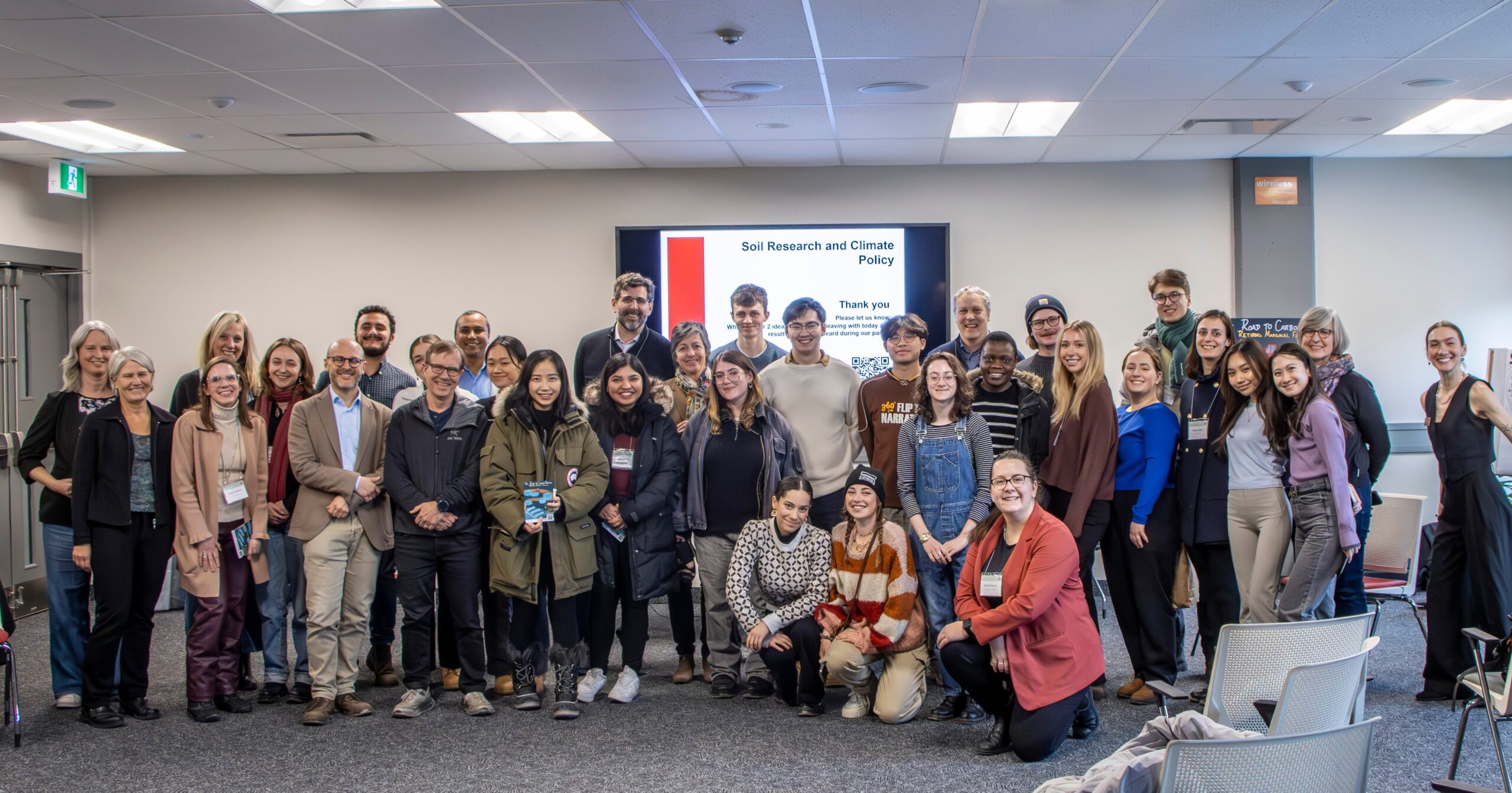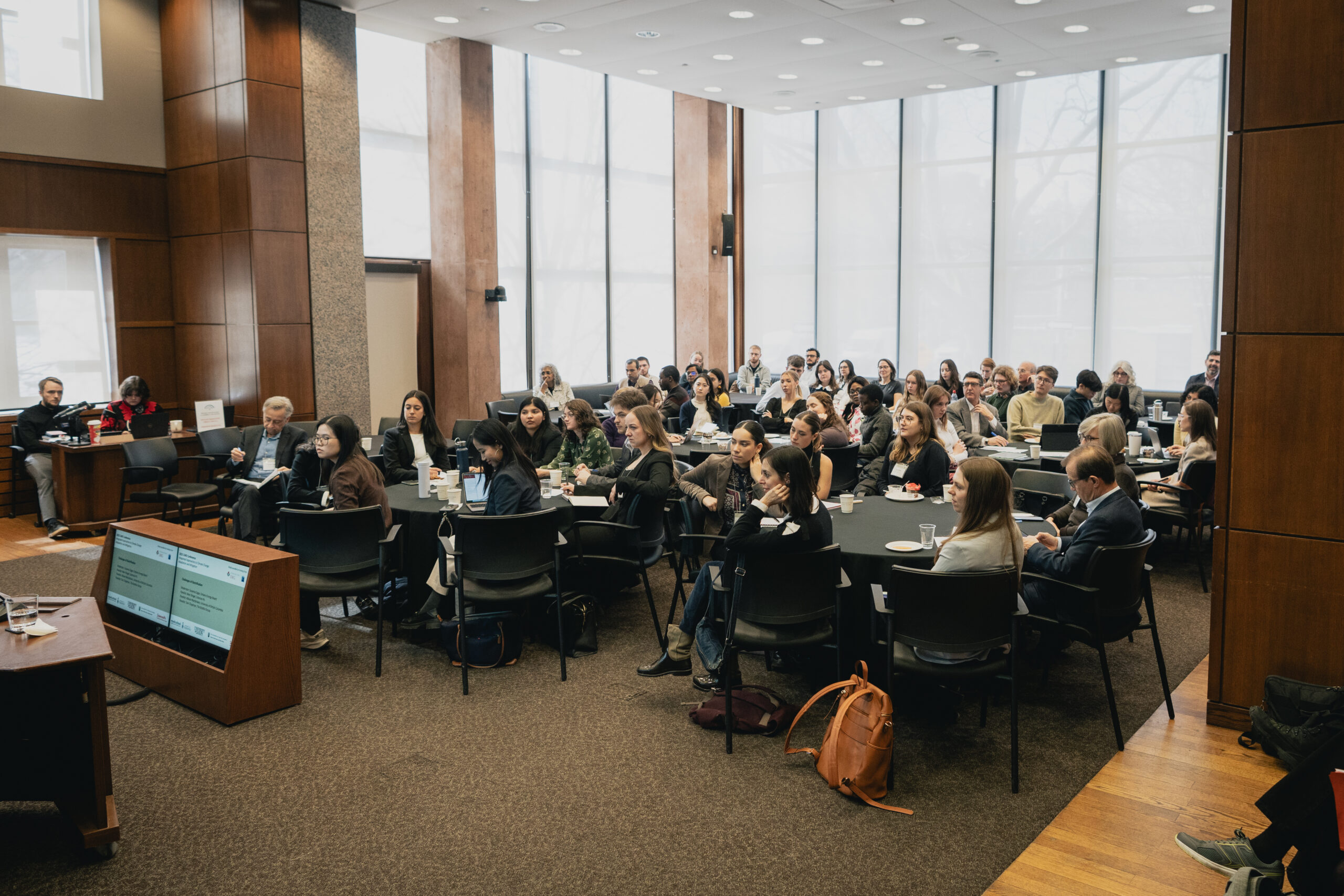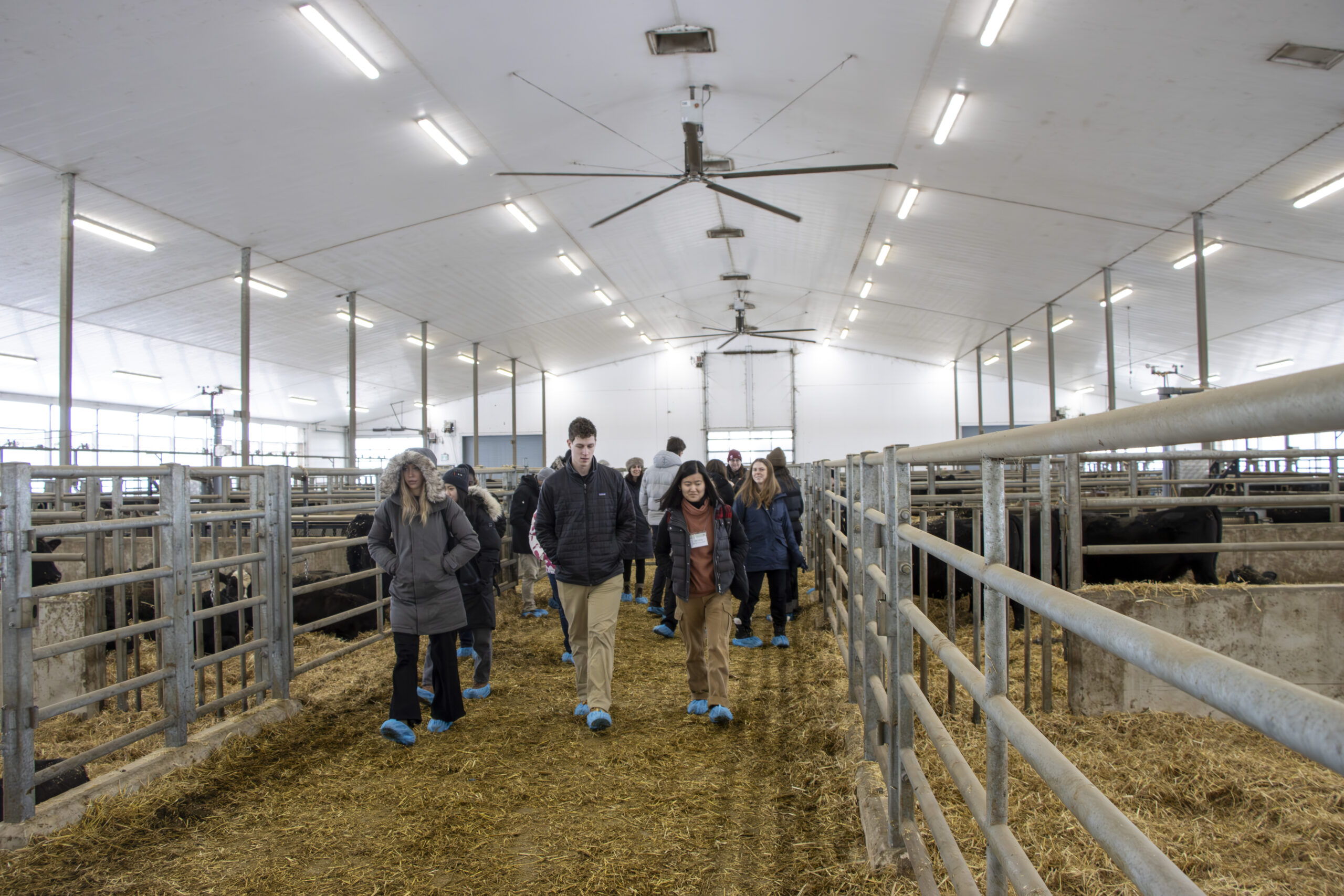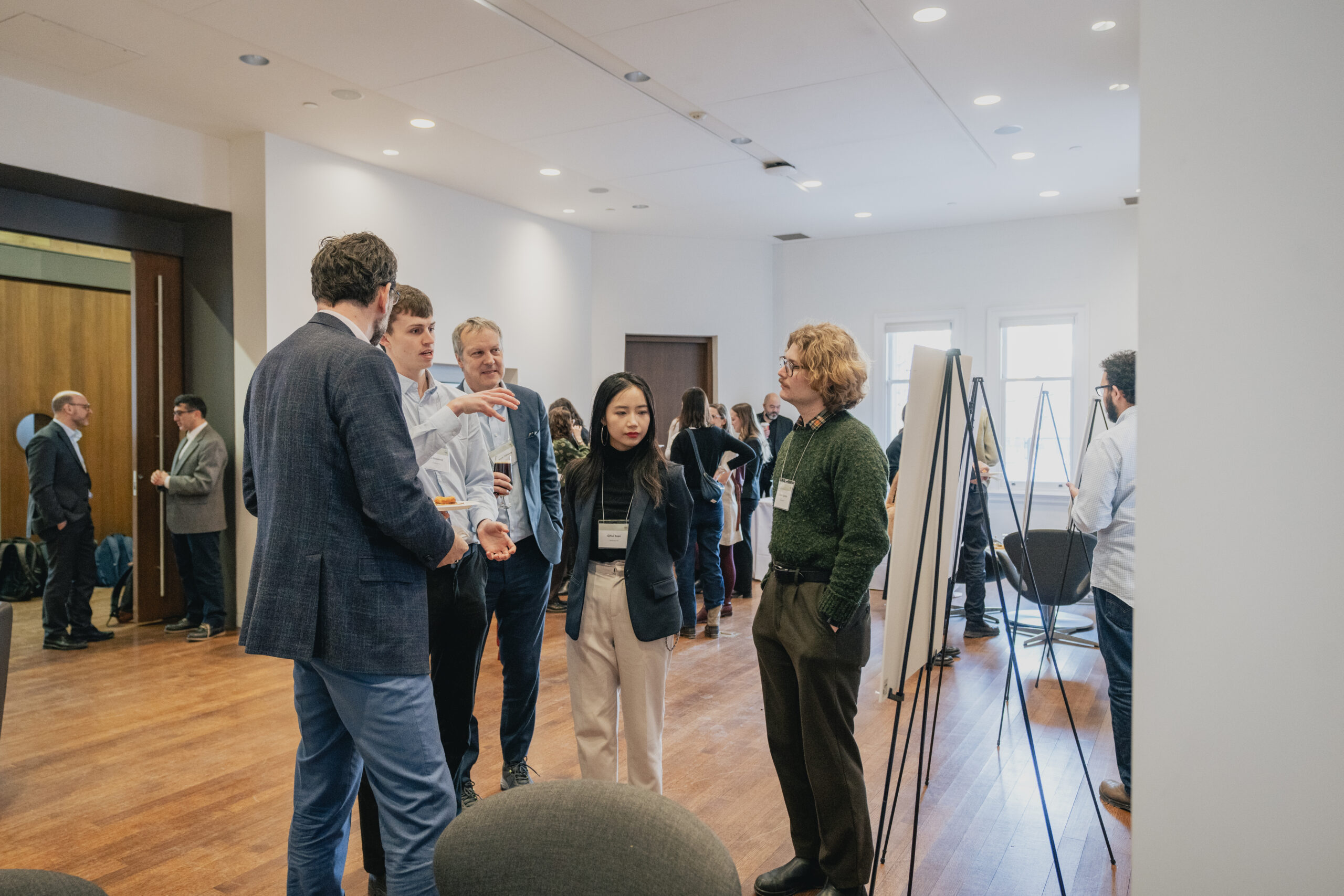From 2-4 March 2025, the CARE Annual Conference brought together students, faculty, and experts in Toronto and Guelph to explore integrated approaches to climate change adaptation and mitigation. Held at the University of Toronto (UofT) and the University of Guelph (UofG), the conference underscored the importance of Franco-Canadian collaboration and student leadership in tackling global environmental challenges.
Designed as both a high-level academic exchange and an opportunity for experiential learning, the conference provided a platform for participants to discuss the complexities of climate transitions, debate potential solutions, and witness first-hand how adaptation and mitigation strategies are being implemented in different sectors.

Day 1: Adaptation and Mitigation in the Energy Transition (University of Toronto)
The first full day of the conference, hosted at UofT’s Munk School of Global Affairs and Public Policy, focused on one of the most pressing topics in climate action: the future of energy. The day opened with welcome remarks from the CARE team at Munk, setting the stage for a series of panels that brought together policymakers, industry experts, and academics to debate the trajectory of the energy transition.
The first panel, The Future of Fossil Fuels, moderated by George Vegh, explored how countries are managing the shift away from fossil fuels while balancing economic and political pressures. Panelists Heather Exner-Pirot, Peter Fraser, and Keith Stewart engaged in a lively discussion on policy directions, investment strategies, and the social implications of decarbonization.
This was followed by a panel on The Challenges of Electrification, introduced by Mariana Higgins, an MPP student at UofT. Speakers including Marc Ringel (Sciences Po), Allison Macfarlane (UBC), and Tom Chapman debated the feasibility of large-scale electrification as a climate solution and examined the infrastructure and regulatory hurdles standing in the way of a fully decarbonized grid.

After lunch, the discussion shifted to a more localized perspective with the panel Adaptation and Mitigation at the Local Level, introduced by Julia Brahy, a CARE Scholarship recipient from Sciences Po. This session, moderated by Leslie Woo, featured insights from James Nowlan (City of Toronto), Ron Saporta (UofT), and others on how municipalities are developing resilience strategies while addressing the immediate needs of their populations.
The final panel of the day, An Integrated Approach to Climate Transitions, brought together previous speakers to connect the themes of the day and outline paths forward for a coordinated climate response.
A key highlight of the day was the UofT Campus Sufficiency Tour, where students saw sustainability initiatives in action, including the university’s geothermal-source heating and cooling unit. This experiential component helped bridge the gap between theory and practice, reinforcing the importance of applying research to real-world problems.
The day ended with a student poster session and reception, where young researchers had the opportunity to present their work to faculty and practitioners. The diversity of projects—from policy analyses to technological innovations—demonstrated the depth of student engagement in climate research.
Day 2: Agriculture and Climate Resilience (University of Guelph)
On the second day, the conference shifted focus to the role of agriculture in climate adaptation and mitigation. Students and faculty traveled to Guelph for a full day of site visits and discussions on regenerative farming, methane reduction in livestock, and sustainable soil management.
The morning began with a visit to Heartwood Farm & Cidery, where students explored how regenerative agriculture can enhance biodiversity and sequester carbon while maintaining economic viability. The visit included a tour of maple syrup production lines, discussions on soil health, and insights into diversified farming practices.
The second site visit took place at the Elora Research Stations, where cutting-edge research is advancing sustainable agriculture. Students learned about methane-reducing dairy cow breeding programs, efficient livestock feed strategies, and innovative soil monitoring systems. Experts such as Christine Baes and Katie Wood provided in-depth explanations on how scientific advancements can help lower greenhouse gas emissions in the agricultural sector without compromising productivity.

Following lunch at the University of Guelph, the final session of the day, Soils at Guelph, brought together researchers Claudia Wagner-Riddle, Kari Dunfield, and Asim Biswas to discuss how soil management strategies can support climate resilience. Their insights highlighted the often-overlooked role of soil in carbon sequestration and emphasized the need for improved agricultural policies.
Looking Ahead
A defining feature of the conference was the emphasis on Franco-Canadian collaboration. The CARE program itself is built on partnerships between Canadian universities and Sciences Po Paris, fostering knowledge exchange between two regions facing distinct yet interconnected climate challenges. Discussions throughout the event underscored the importance of international cooperation in advancing climate solutions, particularly as countries navigate the complexities of energy transition, agricultural adaptation, and sustainable governance.
Students played an important role in shaping the dialogue. From moderating panels to presenting research, they actively contributed to discussions, bringing fresh perspectives to the challenges at hand. Beyond the formal sessions, informal exchanges were just as valuable, strengthening interdisciplinary and cross-cultural connections. Many students highlighted the opportunity to engage not only with policymakers and researchers but also with their peers in a setting that encouraged open discussion and collaboration. For them, the conference was more than just a learning experience—it was a call to action. Whether through research, policy work, or grassroots initiatives, they will be instrumental in shaping the future of climate leadership.

As the 2025 CARE Conference came to a close, the conversations it sparked—between experts, faculty, and students from Sciences Po, UBC, UofG, and UofT—were far from over. The event reaffirmed the need for integrated approaches to climate adaptation and mitigation and reinforced the value of international cooperation in tackling environmental challenges.
Looking ahead, the CARE program remains committed to strengthening connections between Canadian and French institutions, fostering student leadership, and expanding collaborative research opportunities. This year’s conference laid a strong foundation for continued engagement, ensuring that the next generation of climate leaders is equipped with the knowledge, networks, and skills to drive meaningful change.